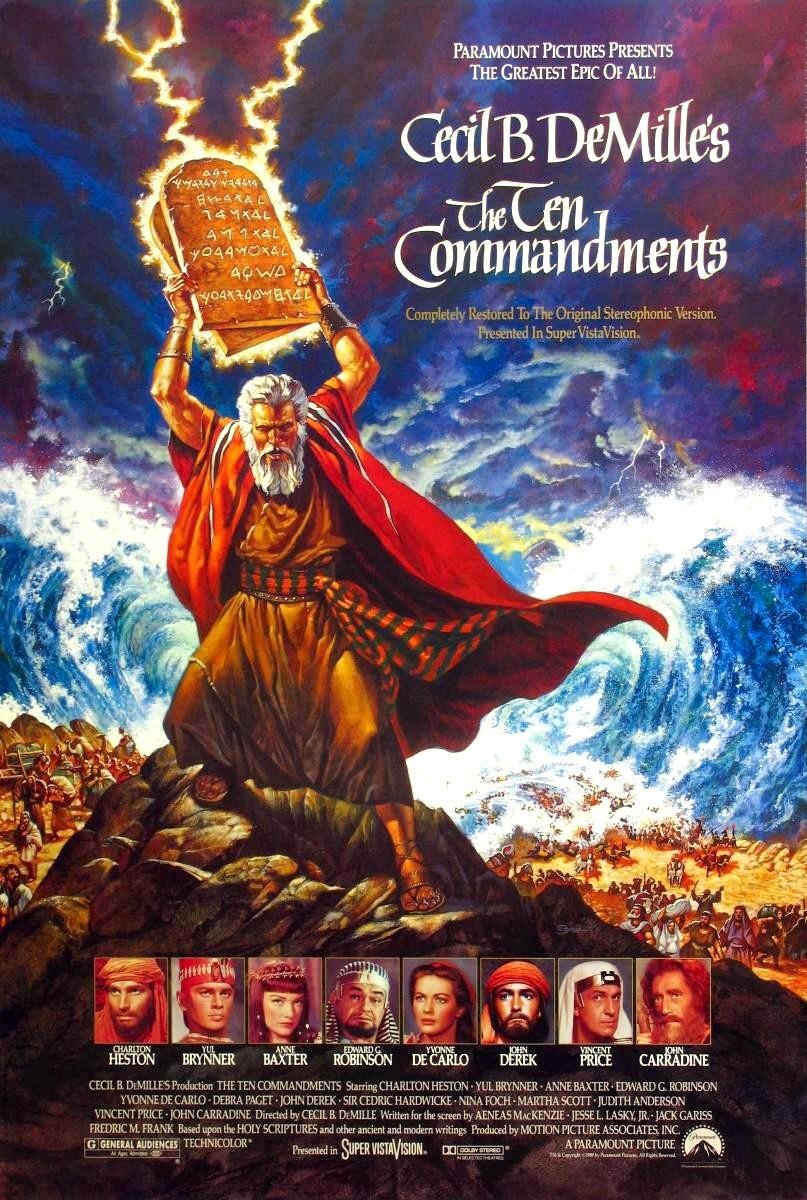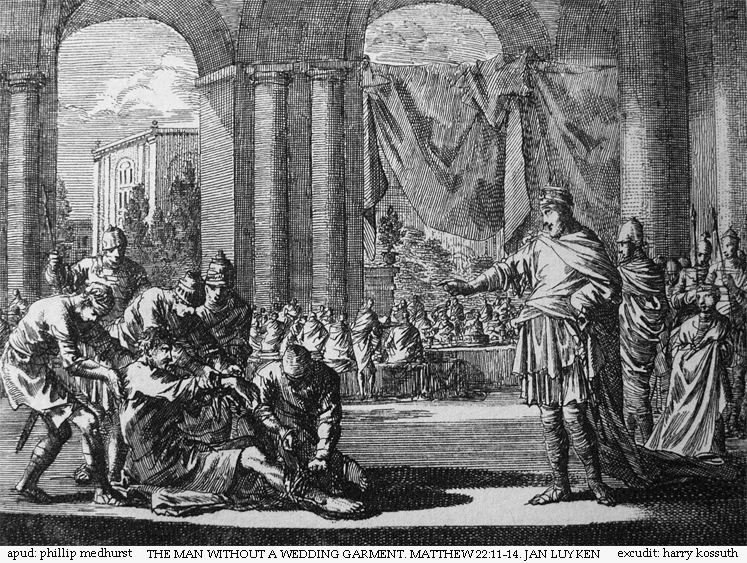
“Moses doesn’t like this. Moses doesn’t like this one bit…“
The readings for Sunday October 12 are Exodus 32:1-14, Psalm 106 (portions), Philippians 4:1-9, and Matthew 22:1-14. For Psalm 106, see On the Psalms up to October 12. The full readings are at Eighteenth Sunday after Pentecost Proper 23, but here are some highlights.
Exodus 32:1-14 tells what happened with the people of Israel as Moses was on Mount Sinai – for 40 days and nights – getting the original 10 Commandments. In brief, they really messed up:
The Israelites feared that [Moses] would not return and demanded that Aaron make them … a “molten calf…” Aaron built an altar before the calf and proclaimed the next day to be a feast to the LORD. So they rose up early the next day … and the people sat down to eat and to drink, and rose up to play… God told Moses what the Israelites were up to back in camp [and said He would ] destroy them and start a new people from Moses. Moses argued and pleaded* … and God “repented of the evil which He said He would do unto His people.”
See Golden calf – Wikipedia. (Incidentally, in the follow-up – Exodus 32:15-20 – “Moses went down from the mountain, but upon seeing the calf, he became angry and threw down the two Tablets of Stone,” as shown in the illustration above. He then “burnt the golden calf in a fire, ground it to powder, scattered it on water, and forced the Israelites to drink it.”)
In Philippians 4:1-9, Paul followed up on last week’s reading (3:4-14), with an “appeal to rejoice in the Lord.” He called on his followers to “stand firm in the Lord,” to let their gentleness “be known to everyone,” and to “not worry about anything.” As the International Bible Commentary noted, this referred to “not being careless but free from the strain which turns so easily to distrust.” Rather, the proper response is to let your requests be made known to God:
And God’s peace, which is far beyond human understanding, will keep your hearts and minds safe in union with Christ Jesus.
In Matthew 22:1-14, Jesus told the Parable of the Great Banquet – Wikipedia, not to be confused with the Parable of the Wedding Feast – Wikipedia, which is only in Luke’s Gospel. As Wikipedia noted, the “Banquet” parable appears in both Matthew 22:1-14 and Luke 14:15-24. On the other hand, Luke’s rendition of the “Feast” parable – at Luke 14:7-14 – is designed to teach at least one different lesson, as told in Luke 14:11: “For every one who exalts himself will be humbled, and he who humbles himself will be exalted.”
Getting back to today’s parable in Matthew, Jesus told of a king “who gave a wedding banquet for his son,” but the invited guests not only gave lame excuses, they also seized the king’s messengers, “mistreated them, and killed them.” The king first got his revenge, noting that “those invited were not worthy.” He then told his messengers go out in the streets and gather “all whom they found, both good and bad; so the wedding hall was filled with guests,” but one guest showed up in his street clothes. As Wikipedia noted (in “Banquet,” above):
The targets of the parable are the already religious who have no time for God; they are represented by the people who accepted an invitation, but when the food is ready, claim they are too busy to turn up… In Matthew, the parable immediately follows the parable of the Wicked Husbandmen, to which it is linked. This connection helps to explain the treatment of the man without wedding clothes. (E.A.)
As generally interpreted, the “wedding invitation” symbolized Jesus extending the “Good News” first to His own people, but when they refused His invitation, that invitation was “extended to anyone and everyone, total strangers, both good and bad… The gospel message, Jesus taught, would be made available to everyone,” to the Hebrews and to the Gentiles. See What is the meaning of the Parable of the Wedding Feast?, which added:
[I]t is not because the invited guests could not come … but that they would not come… The matter of the wedding garment is [also] instructive. It would be a gross insult to the king to refuse to wear the garment provided to the guests. The man who was caught wearing his old clothing learned what an offense it was as he was removed… This was Jesus’ way of teaching the inadequacy of self-righteousness.
Which is another way of saying that not only “if it was easy anybody could do it,” but that if your spiritual pilgrimage is too easy, you’re probably not doing it right, because:
“It is to vigour rather than comfort that you are called.”

The upper image is courtesy of cinemacommentary.com/category/biblical-epics/. See also On Moses and “illeism”, which showed another version of the image, and is where the caption came from.
Re: “Moses argued and pleaded…” See also On arguing with God.
The lower image is courtesy of Parable of the Great Banquet – Wikipedia, with the caption, “Jan Luyken: the man without a wedding garment, Bowyer Bible.”
Re: “It is to vigour…” See A quick summary, above.